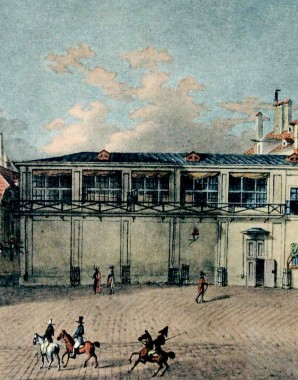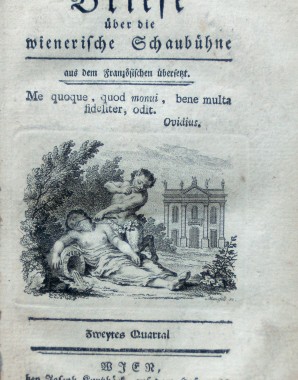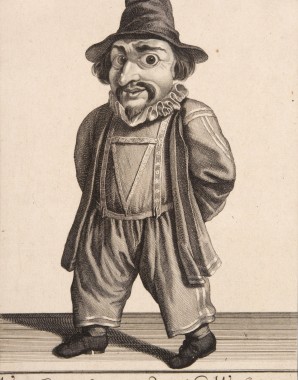‘For the diversion of the public and Your Majesty’
theatre at the Imperial Court
Theatre booms during the eighteenth century, with a large number of new stages being built as a consequence. In Vienna a former real tennis court (Ballhaus) used by the Habsburgs becomes the Hofburg Theatre, and theatrical life also flourishes outside the imperial capital. Depending on rank and taste, people flock to magnificent opera and theatre performances or broad, slapstick comedies based around a clown-like character called Hanswurst which are also performed in front of courtly audiences for the first time. However, the often bawdy improvising of this popular ‘hero’ accompanied by puns and attacks on the authorities causes critics to go on the offensive: in the ‘Hanswurst controversy’ a battle for good taste is fought, with Enlightenment ideas about educating audiences ranged against popular comedy. A ban on extemporizing coupled with censorship is intended to act as a corrective: Hanswurst is muzzled, Shakespeare’s plays are given happy endings and the works of Friedrich Schiller are banned outright.

















